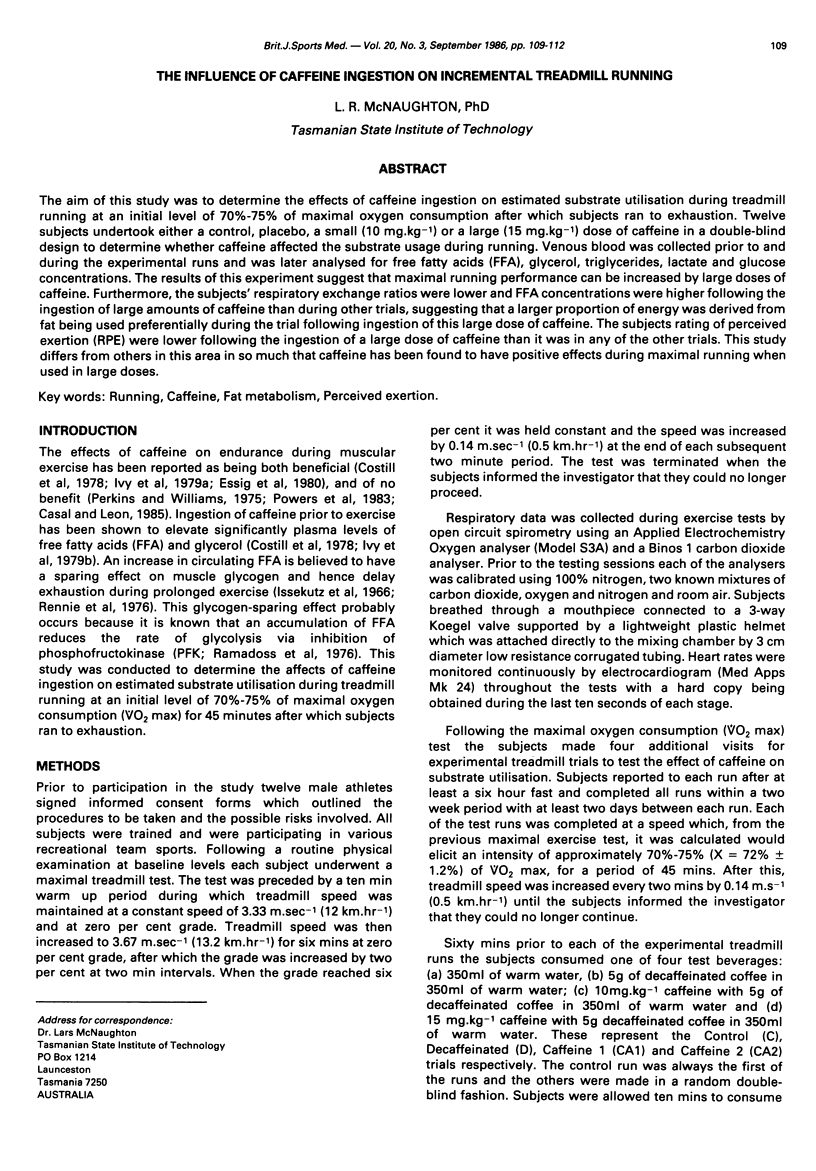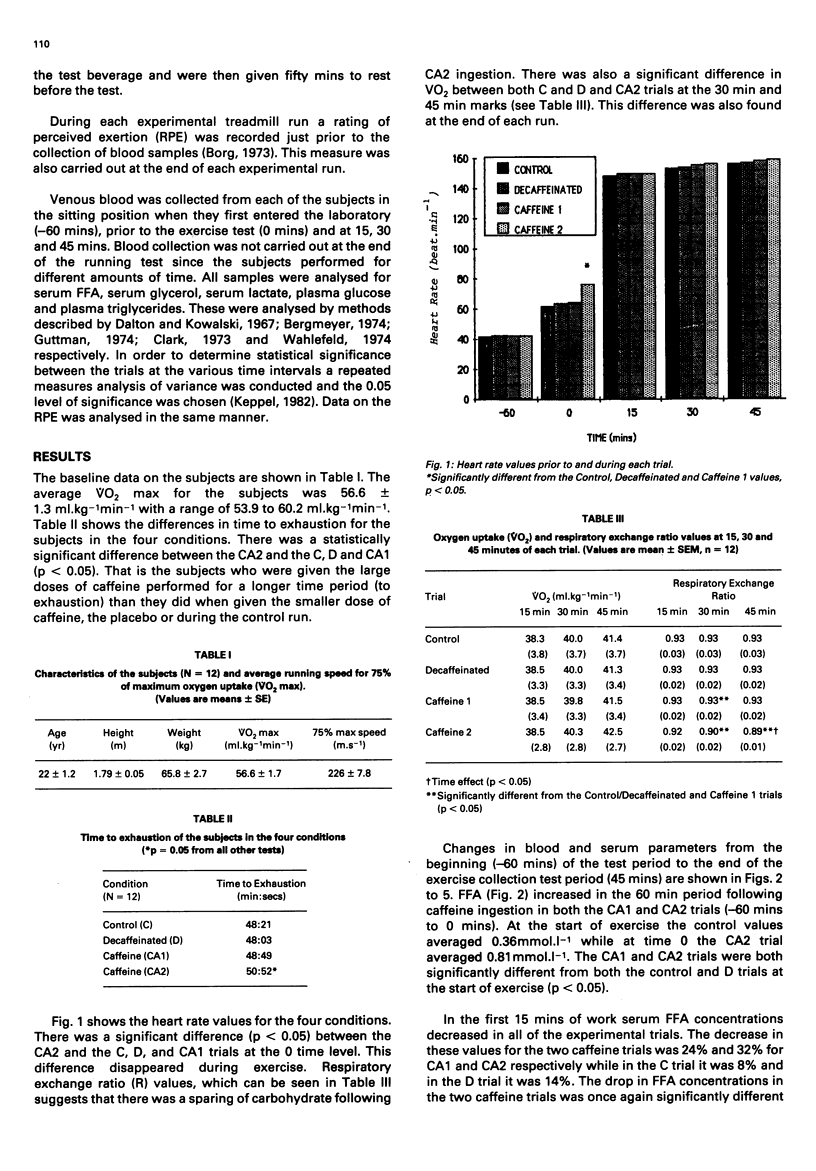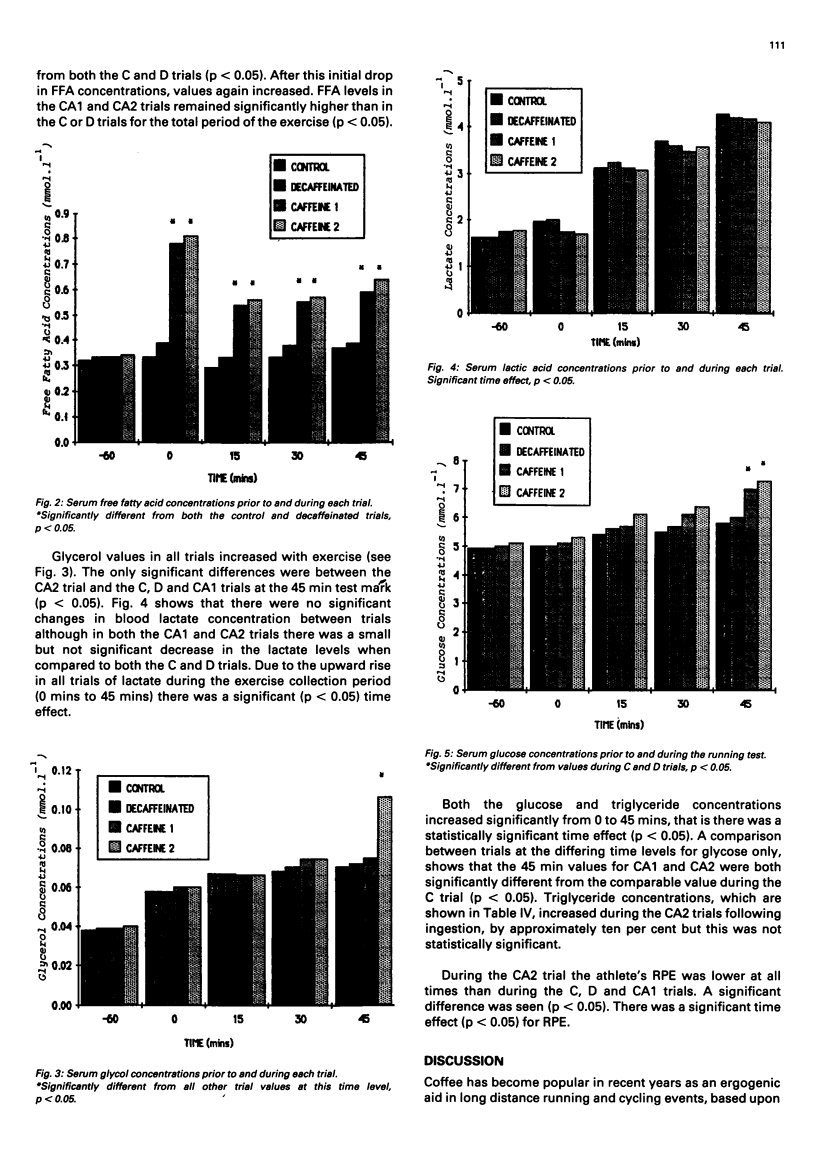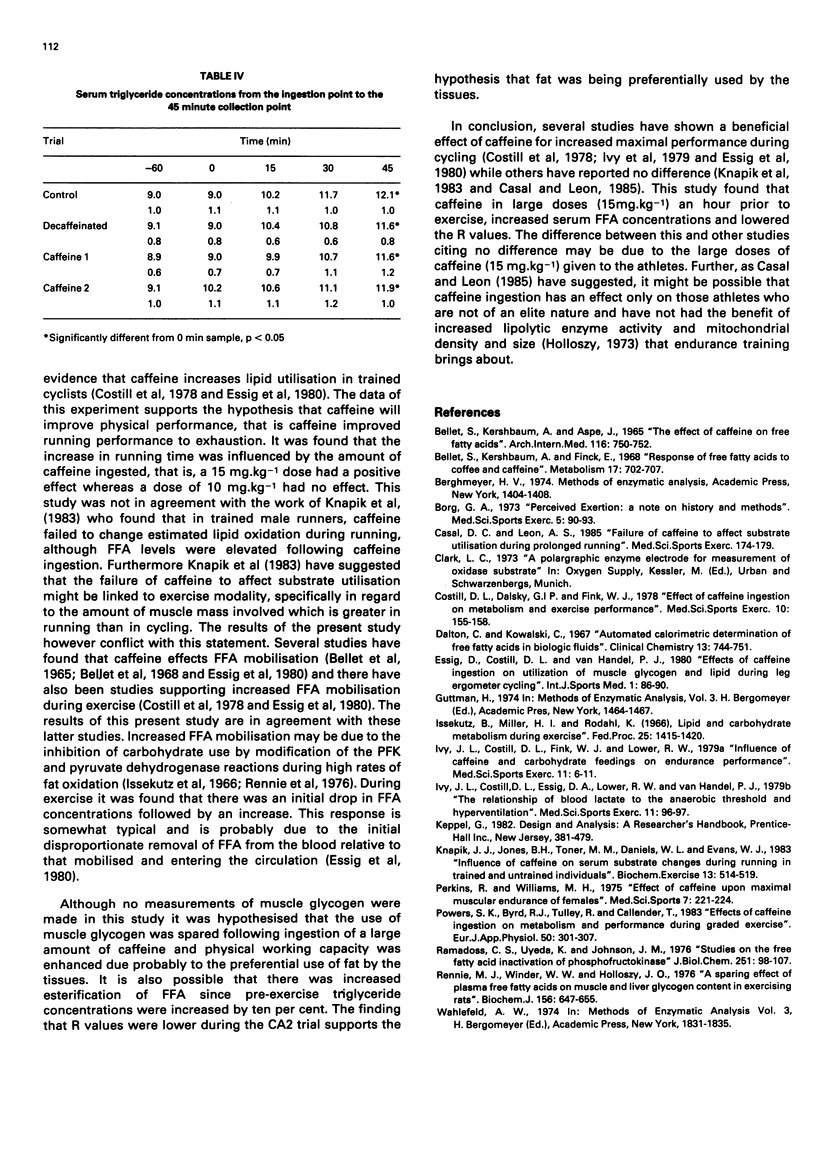Abstract
The aim of this study was to determine the effects of caffeine ingestion on estimated substrate utilisation during treadmill running at an initial level of 70%-75% of maximal oxygen consumption after which subjects ran to exhaustion. Twelve subjects undertook either a control, placebo, a small (10 mg X kg-1) or a large (15 mg X kg-1) dose of caffeine in a double-blind design to determine whether caffeine affected the substrate usage during running. Venous blood was collected prior to and during the experimental runs and was later analysed for free fatty acids (FFA), glycerol, triglycerides, lactate and glucose concentrations. The results of this experiment suggest that maximal running performance can be increased by large doses of caffeine. Furthermore, the subjects' respiratory exchange ratios were lower and FFA concentrations were higher following the ingestion of large amounts of caffeine than during other trials, suggesting that a larger proportion of energy was derived from fat being used preferentially during the trial following ingestion of this large dose of caffeine. The subjects rating of perceived exertion (RPE) were lower following the ingestion of a large dose of caffeine than it was in any of the other trials. This study differs from others in this area in so much that caffeine has been found to have positive effects during maximal running when used in large doses.
Full text
PDF



Selected References
These references are in PubMed. This may not be the complete list of references from this article.
- Bellet S., Kershbaum A., Aspe J. The effect of caffeine on free fatty acids. Arch Intern Med. 1965 Nov;116(5):750–752. doi: 10.1001/archinte.1965.03870050104015. [DOI] [PubMed] [Google Scholar]
- Bellet S., Kershbaum A., Finck E. M. Response of free fatty acids to coffee and caffeine. Metabolism. 1968 Aug;17(8):702–707. doi: 10.1016/0026-0495(68)90054-1. [DOI] [PubMed] [Google Scholar]
- Borg G. A. Perceived exertion: a note on "history" and methods. Med Sci Sports. 1973 Summer;5(2):90–93. [PubMed] [Google Scholar]
- Casal D. C., Leon A. S. Failure of caffeine to affect substrate utilization during prolonged running. Med Sci Sports Exerc. 1985 Feb;17(1):174–179. doi: 10.1249/00005768-198502000-00029. [DOI] [PubMed] [Google Scholar]
- Costill D. L., Dalsky G. P., Fink W. J. Effects of caffeine ingestion on metabolism and exercise performance. Med Sci Sports. 1978 Fall;10(3):155–158. [PubMed] [Google Scholar]
- Dalton C., Kowalski C. Automated colorimetric determination of free fatty acids in biologic fluids. Clin Chem. 1967 Sep;13(9):744–751. [PubMed] [Google Scholar]
- Issekutz B., Jr, Miller H. I., Rodahl K. Lipid and carbohydrate metabolism during exercise. Fed Proc. 1966 Jul-Aug;25(4):1415–1420. [PubMed] [Google Scholar]
- Perkins R., Williams M. H. Effect of caffeine upon maximal muscular endurance of females. Med Sci Sports. 1975 Fall;7(3):221–224. [PubMed] [Google Scholar]
- Powers S. K., Byrd R. J., Tulley R., Callender T. Effects of caffeine ingestion on metabolism and performance during graded exercise. Eur J Appl Physiol Occup Physiol. 1983;50(3):301–307. doi: 10.1007/BF00423236. [DOI] [PubMed] [Google Scholar]
- Ramadoss C. S., Uyeda K., Johnston J. M. Studies on the fatty acid inactivation of phosphofructokinase. J Biol Chem. 1976 Jan 10;251(1):98–107. [PubMed] [Google Scholar]
- Rennie M. J., Winder W. W., Holloszy J. O. A sparing effect of increased plasma fatty acids on muscle and liver glycogen content in the exercising rat. Biochem J. 1976 Jun 15;156(3):647–655. doi: 10.1042/bj1560647. [DOI] [PMC free article] [PubMed] [Google Scholar]


